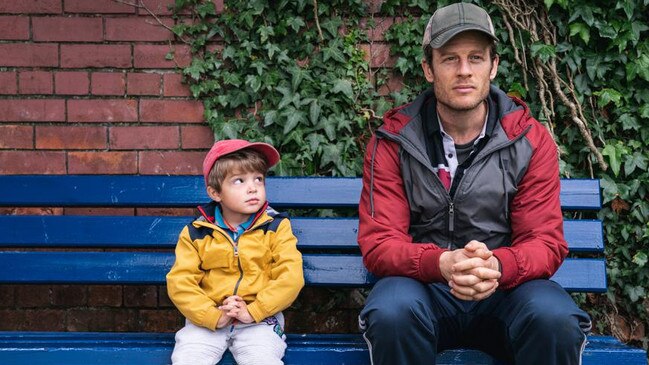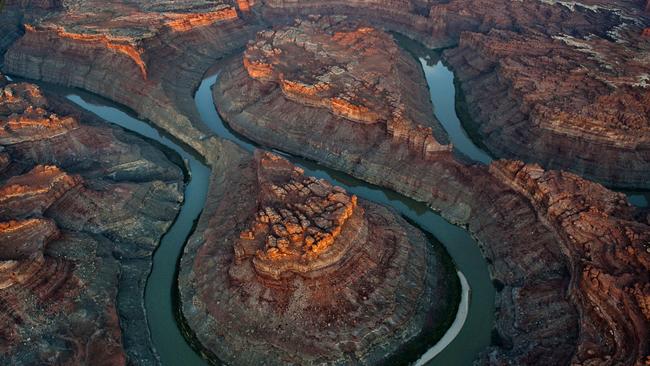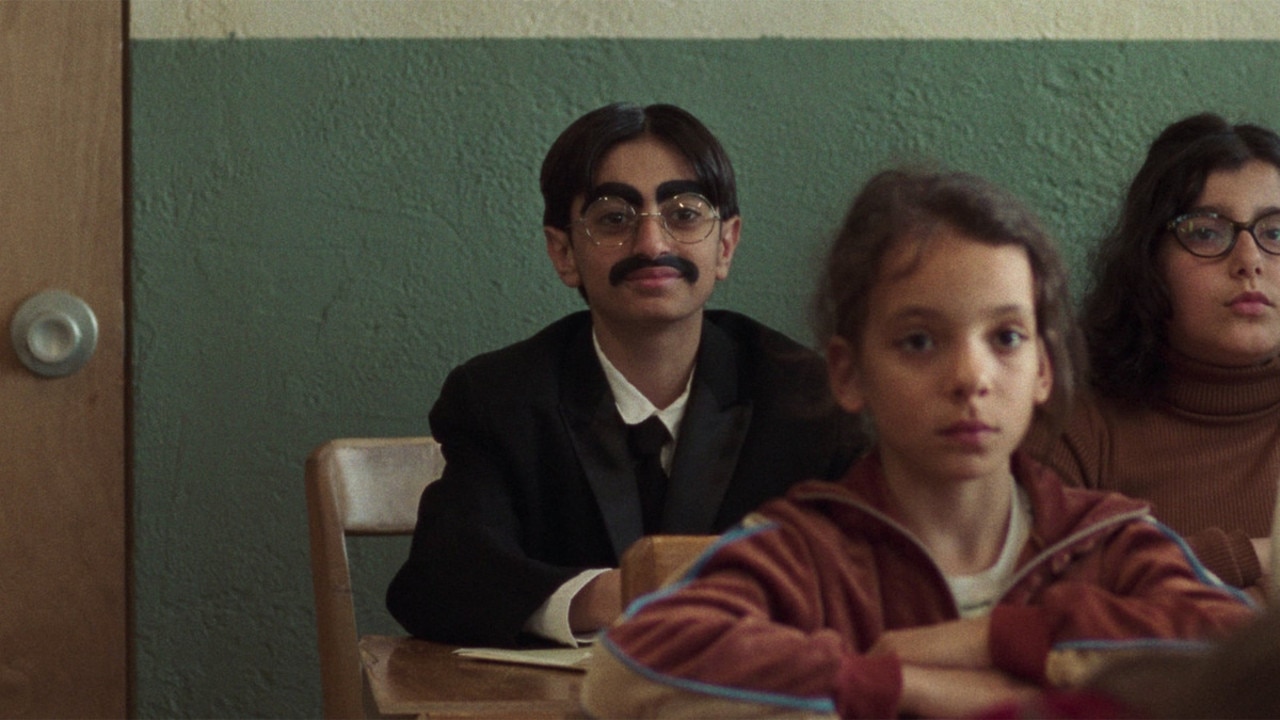Review, Nowhere Special: A dying parent’s difficult decision
Italian director Uberto Pasolini’s Nowhere Special is about a dying father’s efforts to find a home for his four-year-old son.

Nowhere Special (M)
In cinemas
★★★★
Italian director Uberto Pasolini’s Nowhere Special is an achingly touching story, inspired by real-life characters, about a dying father’s efforts to find a home for his four-year-old son. An Italian-Romanian-UK co-production, filmed in Belfast, this very modest production, which centres on an outstanding performance from James Norton, is the kind of film that will resonate for a long time after you’ve seen it.
Norton plays John, a window cleaner who has been diagnosed with a terminal illness. His Russian wife had left him soon after their son, Michael (Daniel Lamont), was born and he’s had no contact with her since.
His one concern is to find a good home for his son before he dies, and he has sought the help of social workers to find a suitable family to adopt the boy.
John is obsessed with finding the best possible family to raise his son. The film is basically a series of encounters with several different prospective parents. John meets with a wealthy couple who love the outdoor life and who on the surface seem perfect; but the working-class John isn’t convinced that Michael should be raised by the rich, or, rather, by members of the upper classes. He also considers a rather uptight couple, but is concerned that the wife seems to dominate her husband, a model train buff who makes it clear that his hobby will be off limits to the boy. A pleasant working-class couple who already have an adopted daughter seems a more likely option, and then there’s a sympathetic single woman to consider.
While not cleaning windows or meeting with candidates for Michael’s adoption, John spends as much time as possible with his son, reading to him (about dinosaurs and how they became extinct), taking him on shopping expeditions and to a fairground, and all the time trying gently to prepare him for the fact that he won’t be around much longer.
When asked if he wants to leave something behind for his son, he demurs; he wants Michael to forget him and to start life afresh, perhaps because he sees himself as a failure: his wife left him, as did his father before her.
Born in Rome, director Pasolini has had an interesting career that includes being one of the producers of The Full Monty (1997). His previous film as director, Still Life (2013), was also about death and loss – the central character arranged funerals for people with no next of kin – and his unsentimental approach to potentially maudlin material is impressive.
-
It Snows in Benidorm (Nieva en Benidorm) (MA15+)
In cinemas
★★½
Benidorm is a coastal resort on the east coast of Spain, south of Valencia, and it’s the setting for Catalan writer-director Isabel Coixet’s leisurely film about an Englishman who comes to the town on a fruitless search for his missing brother.
Timothy Spall plays Peter Riordan who has worked for years as a clerk in a bank in Manchester and who has been forced into early retirement because he finds it hard to turn down bank customers who are in desperate need. He decides to renew contact with Daniel, his brother, whom he hasn’t seen in a long time, and an arrangement is made for Peter to fly to Spain where Daniel has lived for years.
But when he arrives at Benidorm airport his brother is nowhere to be seen. After hanging around for a while Peter takes a taxi to Daniel’s apartment to be informed that his brother has been away on business for several days. Permitted by the concierge to move in, Peter, with very limited Spanish, attempts to make contact with anyone who might know his brother’s whereabouts.
The resort seems largely populated by elderly British expats; there’s an English bar (The Red Lion), English food, and lots of drunks. And there’s no snow; the title is a joke. Some mysterious events occur; Peter is “kidnapped” by the local butcher (Pedro Casablanc) whose policewoman sister (Carmen Machi) quotes Sylvia Plath – Plath was apparently a one-time resident of the town. Peter finds himself attracted to Alex (Sarita Choudhury), one of Daniel’s friends.
It Snows in Benidorm was produced by Pedro Almodovar’s company, El Deseo, but Coixet is no Almodovar and the languidly paced film really doesn’t go anywhere very interesting. It’s a bit depressing to see Ana Torrent, the luminous former child star of two masterpieces of Spanish cinema, The Spirit of the Beehive (1973) and Cria Cuervos (1975), in a nothing role as a cleaning woman.
Spall rises above the material, as he usually does, but the film, which is divided into chapters that refer to the weather, builds to a non-dramatic conclusion that ends this underwhelming drama with a whimper.
-
River (G)
In cinemas
★★★★
Jennifer Peedom, one of Australia’s foremost documentary filmmakers, is rightly celebrated for her mountain films Sherpa (2015) and Mountain (2017); her latest film, River, brings us down from the heights into the valleys beneath and to the river systems that play such a vital role in the health of the planet. “Thousands have lived without love – not one without water” – a quote from poet W.H. Auden – sets the tone.
With the unprecedented amount of rain that has deluged the eastern seaboard of Australia in recent weeks the release of a film about rivers and water might not be the best timing; but this stunningly well photographed, poetically inclined hymn to the world’s waterways is definitely a must-see.
“Rivers are the source of human dreams” intones the film’s narrator, Willem Dafoe, and then delves deeply into the way we’ve reacted to rivers, either using them for recreation or as an essential source of life. A source of life that, the film proposes, is under threat because of human mismanagement; the overuse of dams, the pollution, the redirecting of the rivers. Now-familiar scenes of thousands of dead fish and mountains of plastic waste are, as ever, sobering.
Filming took place in several different parts of the world and while some of the material is exhilarating a good deal of it is distressing. “We must be good ancestors to those who come after us, downstream of us” is another key line in the accompanying narration, which was written by Peedom and Robert Macfarlane.
The film’s soundtrack is majestically augmented by a specially composed music score by Richard Tognetti, performed by the Australian Chamber Orchestra. River is a film for everyone, a beautiful yet troubling evocation of our environment and a stark reminder of the dire things that are happening to it.





To join the conversation, please log in. Don't have an account? Register
Join the conversation, you are commenting as Logout